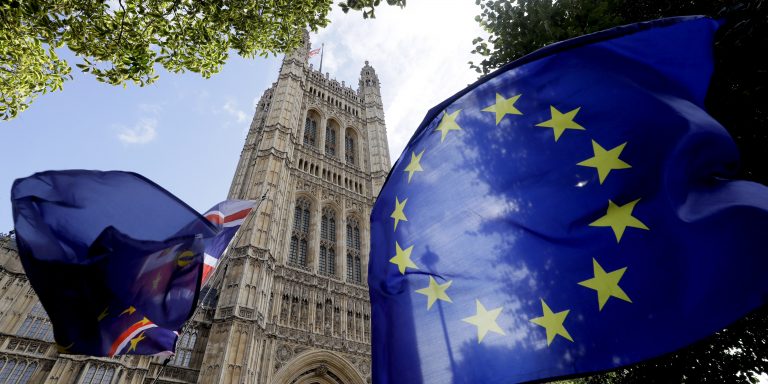INTELBRIEF
September 27, 2019
IntelBrief: Britain’s Brexit Mess Gets Worse

- Britain’s Parliament descended into angry shouting on September 25 as the country remains in turmoil over Brexit.
- Even for normally boisterous British politics, recent sessions have revealed a deep-seated dysfunction.
- The U.K.’s highest court had earlier declared the prorogation of Parliament to be unlawful.
- There remains no agreed-upon plan between the U.K. and the E.U. for the latter’s October 31 deadline.
.
The political rhetoric in the U.K.’s Parliament reflects ongoing dysfunctional, with shouts of ‘traitor’ and ‘surrender’ filling the chamber during an extremely contentious session on September 25, 2019. The session was brought about by the U.K’s supreme court ruling that held that the Prime Minister Boris Johnson’s suspension (prorogation) of Parliament for an unprecedented five weeks was unlawful. Tensions were already high when the session began and later spiked when Prime Minister Johnson spoke. He repeatedly described the Benn Bill—aimed at preventing the U.K. from exiting the European Union (E.U.) with no deal at the end of October—as a ‘surrender bill’ and dared his political opponents to hold a vote of no confidence and call for new elections. Brexit has paralyzed the U.K. for several years running and in that time there has been no progress at reaching a workable compromise. Rather, the divide has been exacerbated.
Fissures in Parliament are representative of a country deeply divided over the long-running and soon approaching Brexit deadline of October 31. While the Prime Minister’s office has said progress has been made, E.U. officials have flatly refuted such claims and have stated that Britain has, to date, been unable to present credible proposals. It remains more likely than not that the U.K. will leave the E.U. with no prearranged deal to soften the transition. The economic implications of a no-deal exit are serious and will certainly have negative consequences.
The Benn Bill, which Prime Minister Johnson has repeatedly labeled a ‘surrender bill,’ requires the government to extend Article 50 until January 31 if the U.K. and the E.U. fail to reach a deal by October 19. The other 27 members of the E.U. would also have to grant yet another extension, something member states seem loathe to do, particularly if there is a widespread perception that an extension is merely delaying the inevitable. Since the Benn Bill passed in early September, Prime Minister Johnson has been calling for snap elections, for which two-thirds of Parliament would have to agree. Johnson is betting that he would regain lost political leverage in such an election, which would be a de facto vote on the original ‘Leave or Remain’ vote from 2016. So far, his political opponents have refused to vote for early elections.
As the U.K. staggers headlong toward Brexit, it has become clear that real political and social damage has been wrought throughout the process. The Leave side had argued that exiting the E.U. would ‘restore’ the sovereignty of British courts, yet many of them were furious when the U.K.’s highest court deemed Parliament’s suspension as unlawful. The Remain side has used terms like ‘coup’ and ‘fascism’ to describe the actions of the Prime Minister. It was only a few weeks before the Brexit referendum when Member of Parliament Jo Cox was murdered by a man shouting, ‘Britain First’ and ‘death to traitors.’ That same language and virulent rhetoric is now being used in Parliament. The situation will likely get more tense and potentially dangerous over the next several weeks as Brexit comes to a head.
.
For tailored research and analysis, please contact: info@thesoufancenter.org